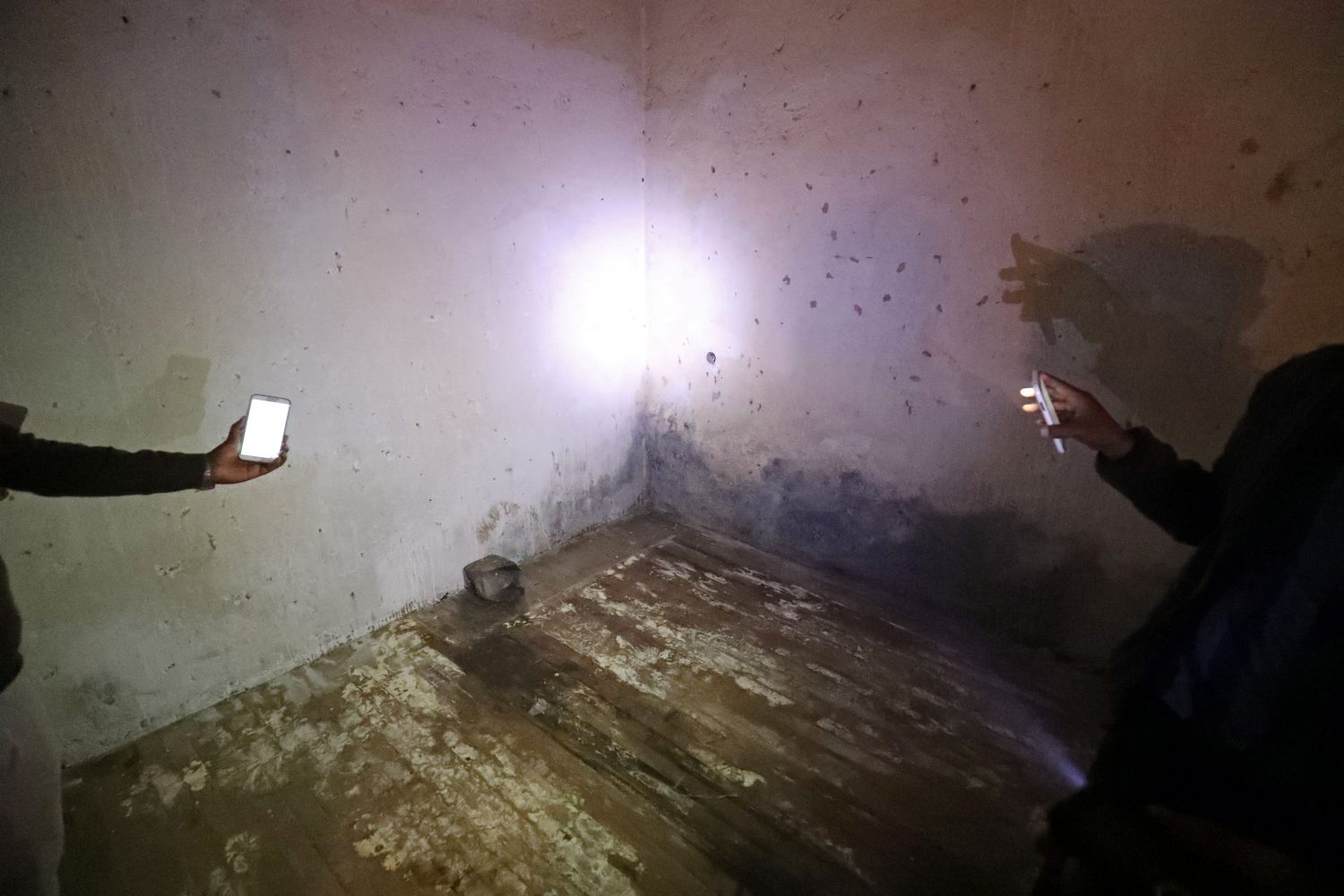
ADDIS ABABA (Reuters) – Blogger Befekadu Hailu’s eyes filled with tears as he stood on the spot where he had watched a guard attack a friend in Maekelawi detention center, a name long synonymous in Ethiopia with torture and fear.
Befekadu returned to visit the former police station on Friday as a tourist, not an inmate, after the government opened the building to the public for three days as part of its push towards new democratic freedoms.
“We have to take a lesson from this,” Attorney General Berhanu Tsegaye said at a ceremony at the site. “Human rights violations which took place here should not be repeated.”
Prime Minister Abiy Ahmed closed the notorious detention and interrogation center in Addis Ababa last year after he took office pledging an end to “state terrorism”.
Befekadu, 39, was imprisoned there for 84 days without charge in 2014. On Friday morning, he took Reuters to see the damp, dark interrogation rooms.
Prisoners called the frigid underground cells where he was detained “Siberia”.
The center was used by successive rulers, including military dictator Mengistu Haile Mariam and the Ethiopian People’s Revolutionary Democratic Front (EPRDF), which wrested power from him in 1991.
BEATINGS
Befekadu and other detainees had poked holes in the plaster that filled the metal bars on their cell door. It was meant to stop them from seeing outside.
He said that one day, a policeman noticed him peering out and demanded to know who made the holes. The officer began kicking Befekadu’s fellow prisoner Atnaf.

Befekadu Hailu, 39, an ex-inmate of the Maekelawi detention center for political prisoners is seen as he stands in the room where he was detained after it was opened to the public in Addis Ababa, Ethiopia September 6, 2019. REUTERS/Tiksa Negeri
“My friend was beaten here and I couldn’t defend him,” he said, his voice cracking. He searched on Friday for graffiti that prisoners had scrawled, but the wall under his fingers was slick with fresh yellow paint.
In a 2013 report, New York-based Human Rights Watch documented torture at Maekelawi, often used to extract confessions from suspected political opponents.
Guards beat prisoners with gun butts and electric wires and handcuffed victims’ wrists to the ceiling.
That is forbidden now, said Supreme Court president Meaza Ashenafi, a lawyer and women’s rights activist appointed by Abiy last year. The country was changing “from a condition where human rights were violated to a condition where they are now respected”, she said during her visit to the cells on Friday.
Some senior officials implicated in rights abuses have been arrested. The former head of national intelligence has been charged with murder and torture in absentia. Former political prisoners now head the election board and the government-run national human rights commission.
But Laetitia Bader, a senior Human Rights Watch Africa researcher, said more needs to be done to heal past wounds. Most trials have not begun and a reconciliation commission set up in December has an unclear mandate, Bader said.
“The government hasn’t presented a clear roadmap for how it plans to deal with the country’s abusive past,” she said.
Activists continue to be detained, said prominent journalist Eskinder Nega, who was jailed repeatedly on terrorism charges prior to Abiy’s appointment.
Five of his colleagues have been held without charge since June under the anti-terrorism law, he said. The prime minister is new, but the government is still the same ruling coalition, he said.
“This is a classic pretext to crackdown on dissent,” he said. “None of the authoritarian structures have been overhauled.”
(Additional reporting and writing by Maggie Fick; Editing by Katharine Houreld and Frances Kerry)








